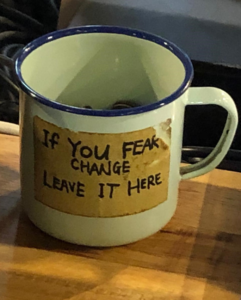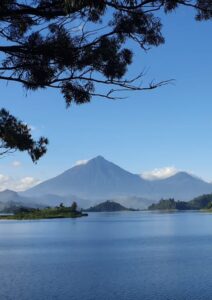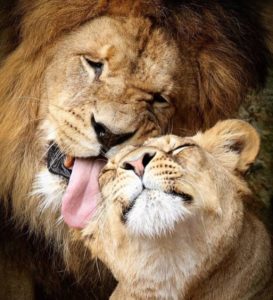“Let the light rays of your thoughts re-absorb back into your sun-like mind, and rest in that sense of wholeness and integration”
 Dear Integral Meditators,
Dear Integral Meditators,
This weeks article explores a method I was taught many years ago by my Tibetan teacher as a way of resting on you primal mind or primal awareness. If you enjoy the article, then we will be exploring its theme in this weeks Tuesday and Wednesday meditation class, you are welcome to join us!
Also, heads up for the new Monthly Qi Gong & Taoist Breathwork Clinic & Mini-retreat this Sat 29th Jan. Movement, mobility, breathing and meditation are all intimately related!
In the spirit of lightrays,
Toby
Your thoughts as light rays, your mind as the sun
This meditation is a variation of one that I was taught at a Buddhist festival many years ago. Its aim is to help us to move from a busy thinking state to a state of warm, clear awareness in a relatively easy-going and relaxed manner. One issue that it addresses well is that it helps us to work with our thoughts, rather than against them as we move toward a meditative state.
Imagining the sun
First of all, you might like to imagine yourself sitting in a landscape with the sun above you, radiating it’s light all around you. You can use this time to set a bit of a mood and ambience by picturing the nature and landscape around you as pleasant, relaxing and sensual.
Imagining your mind as the sun
When your ready, you can then gently start to imagine your mind as the sun. You can imagine it located in your heart centre, or in the centre of your head as you prefer. See it radiating light all around you. Breathe in and out with this image and sensibility. At a certain point, start to see your mind as the sun, and the thoughts and images in your mind as like light-rays radiating from the sun.
Here by ‘mind’ we are really referring to our essential mind, or consciousness itself which is the source and basis of our thoughts and thinking.
Absorbing the light-rays of your thoughts
Once you have gotten used to the sense of your thoughts as being like light-rays radiating from your sun-like mind, you can then imagine that, when a thought comes up, that it is just a light-ray. Then let the light ray absorb back into your sun-like mind, and rest in that sense of wholeness and integration.
Relaxing into your ‘true nature’
If you practice the stage above for a while, then you’ll start to feel a sense of wholeness and integration in both your body and your mind. By becoming like an (increasingly) thought free sun, you will find yourself actually connecting with and experiencing your mind-as-consciousness-itself. In the great wisdom traditions, this experience is known as recognizing your true nature, or the fundamental essence of what/who you are beneath and beyond your physical being and psychological persona.
Practical tip: Connect to the warmth
As well as the light element of this form, if you can feel the warmth of the sun, and translate it to a feeling of emotional warmth and joy, then this makes the experience more complete. It also invites our emotional nature to participate as well as our intellect.
Related articles: Head in the sun meditation
Witnessing like the sun
Related article: Becoming a man or woman of no rank
Article & content © Toby Ouvry 2022, you are welcome to use or share this article, but please cite Toby as the source and include reference to his website www.tobyouvry.com
In case you missed it, from last week: Your spiritual ancestors
Two types of ancestors
We live within the energetic field of our ancestors and family, past and present. Becoming aware of this and working with it is an important dimension of our spiritual practice that can really enhance the richness of our life. It can also provide important keys to resolving blockages and conflicts, both within ourself and in our relationships…read full article
 Saturday Jan 29th, 9.30-11.30am – Monthly Qi Gong & Taoist Breathwork Clinic & Mini-retreat
Saturday Jan 29th, 9.30-11.30am – Monthly Qi Gong & Taoist Breathwork Clinic & Mini-retreat
In a sentence: Experience unique Qi gong and Taoist breathing techniques to improve your immune system, energy level, psychological wellness and enhance your meditation…read full details
 Tues & Weds Feb 1st & 2nd – Lunar New Year Meditation 2022: Developing your inner power in the year of the Tiger
Tues & Weds Feb 1st & 2nd – Lunar New Year Meditation 2022: Developing your inner power in the year of the Tiger
About the class: This is a meditation to welcome in the lunar new year energies, and attune to the astrological animal of the year, the Water Tiger! In particular, we will be mindfully aligning with and developing our inner and outer power as well as other primal characteristics of the Tiger.
Toby will be leading the meditation as a simple and profound way, with plenty of room for our own personal contemplation, inner healing and positivity building! Full details here
Are you looking a coach who can help you to:
- Meet the challenges, stress and changes that you face in a more effective and mindful way
- Become happier within yourself, in your relationships and at work
- Be actively accountable for finding a sense of balance/well-being in your life and fulfilling your personal potential?
- Guide you to find and operate from a deeper sense of meaning, motivation and connectivity in your life?
All upcoming classes and workshops at IMA:
Ongoing – Weekly Tuesday, Wednesday Online class schedule
Ongoing on Wednesday’s, 7.30-8.30pm – Wednesday Meditation for stress transformation and positive energy with Toby (Bukit Timah)
Ongoing on Tuesday evenings, 7.30-8.30pm – Tuesday Meditation for stress transformation and positive energy with Toby (East Coast)
Ongoing January-March – Zen: The ordinary path to enlightenment – Meditating with the Ten Ox Herding pictures
Saturday Jan 29th, 9.30-11.30am – Monthly Qi Gong & Taoist Breathwork Clinic & Mini-retreat
Tues & Weds Feb 1st & 2nd – Lunar New Year Meditation 2022: Developing your inner power in the year of the Tiger
Integral Meditation Asia
Online Courses * 1:1 Coaching * Books * Live Workshops * Corporate Mindfulness Training *Life-Coaching * Meditation Technology





 Dear Integral Meditators,
Dear Integral Meditators,
 Dear Integral Meditators,
Dear Integral Meditators,


 Dear Integral Meditators,
Dear Integral Meditators,


 Smiling meditation & your psychosomatic health
Smiling meditation & your psychosomatic health


 Originally ‘Wabi-sabi’ is a type of Japanese aesthetic found in the arts and crafts, specifically in ceramic and home decoration. It works with an appreciation of the way in which impermanence, imperfection and decay affect everyday objects, and our life.
Originally ‘Wabi-sabi’ is a type of Japanese aesthetic found in the arts and crafts, specifically in ceramic and home decoration. It works with an appreciation of the way in which impermanence, imperfection and decay affect everyday objects, and our life. Sundays 6-6.50pm –
Sundays 6-6.50pm – 



